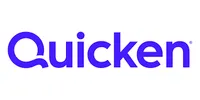What the House's Vote to Repeal CFPB Bank Overdraft Fees Cap Means For You
The Senate and House voted to overturn the Consumer Financial Protection Bureau's cap on bank overdraft fees. Here's what you need to know.


Profit and prosper with the best of Kiplinger's advice on investing, taxes, retirement, personal finance and much more. Delivered daily. Enter your email in the box and click Sign Me Up.
You are now subscribed
Your newsletter sign-up was successful
Want to add more newsletters?

Delivered daily
Kiplinger Today
Profit and prosper with the best of Kiplinger's advice on investing, taxes, retirement, personal finance and much more delivered daily. Smart money moves start here.

Sent five days a week
Kiplinger A Step Ahead
Get practical help to make better financial decisions in your everyday life, from spending to savings on top deals.

Delivered daily
Kiplinger Closing Bell
Get today's biggest financial and investing headlines delivered to your inbox every day the U.S. stock market is open.

Sent twice a week
Kiplinger Adviser Intel
Financial pros across the country share best practices and fresh tactics to preserve and grow your wealth.

Delivered weekly
Kiplinger Tax Tips
Trim your federal and state tax bills with practical tax-planning and tax-cutting strategies.

Sent twice a week
Kiplinger Retirement Tips
Your twice-a-week guide to planning and enjoying a financially secure and richly rewarding retirement

Sent bimonthly.
Kiplinger Adviser Angle
Insights for advisers, wealth managers and other financial professionals.

Sent twice a week
Kiplinger Investing Weekly
Your twice-a-week roundup of promising stocks, funds, companies and industries you should consider, ones you should avoid, and why.

Sent weekly for six weeks
Kiplinger Invest for Retirement
Your step-by-step six-part series on how to invest for retirement, from devising a successful strategy to exactly which investments to choose.
The House voted 217-211 in favor of overturning the Consumer Financial Protection Bureau's (CFPB) cap on overdraft fees banks can charge. With the approval, the measure goes to president Donald Trump to sign.
The rule, put in place by the Biden administration in December, capped what they called "junk fees" banks could impose on customers, including overdraft charges. The rule was slated to start on October 1 later this year.
Banking Committee Chairman Tim Scott (R-SC), who introduced the measure to repeal this rule, said on the Senate floor, per Politico, "President Biden’s politically motivated 'junk fee' conversation was not about helping consumers."
From just $107.88 $24.99 for Kiplinger Personal Finance
Become a smarter, better informed investor. Subscribe from just $107.88 $24.99, plus get up to 4 Special Issues

Sign up for Kiplinger’s Free Newsletters
Profit and prosper with the best of expert advice on investing, taxes, retirement, personal finance and more - straight to your e-mail.
Profit and prosper with the best of expert advice - straight to your e-mail.
Here's how this vote impacts you.
How the bank overdraft fees rule would have worked
The rule would have applied to banks carrying at least $10 billion in assets. Financial institutions in that category would be required to cap overdraft fees at $5 per transaction.
By comparison, the average overdraft fee is around $35, according to the Federal Deposit Insurance Corporation. The CFPB had said the new rule could help customers save up to $5 billion annually.
The CFPB's new rule also would allow two other workarounds for banks on how they handled overdraft fees: They could voluntarily set a fee that only covered the losses or package overdraft fees into a loan under the Truth in Lending Act. (The Truth in Lending Act outlines all the fees associated with a short-term loan to cover overdrafts, so you have an idea of the total cost of borrowing before agreeing to it.)
Where does the measure go from here?

With the House Senate approval, the measure moves over to the White House, where Trump will sign off on the measure.
ABA President and CEO Rob Nichols told the ABA Banking Journal, "We applaud the passage of the Congressional Review Act resolution nullifying the CFPB’s unlawful overdraft rule." He added, "Without access to overdraft protection, many Americans would be driven to less regulated and higher risk nonbank lenders to cover unexpected or emergency expenses."
This vote takes place as the Trump administration targets the CFPB. Shutting down the CFPB, which has gone after banks, mortgage lenders, credit card companies and more for their treatment of customers, would require Congress' support.
How to avoid bank overdraft fees moving forward
Many banks and credit unions rely on overdraft fees as another revenue stream. The Consumer Financial Protection Bureau reports the bigger banks get $8 billion in overdraft fees each year. Even still, many also offer products to help you avoid them.
Say you overdraft your account, but you have protection where your bank will transfer the money from your savings account to cover. While they're happy to do it, they'll assess a minimal fee for doing so. Still, you'll save much more money going this route instead of allowing overdraft fees to snowball.
Another option is to use budgeting apps to help you see a clearer picture of your finances. One of the best and most affordable options is Quicken's Simplifi, which breaks down your expenses to help see where your money is going. It can also anticipate future cash flows, allowing you to see where to curtail spending before running out of money.
Quicken Simplifi $2.99 p/m (when billed annually).
Prevent future bank overdraft fees with future cash flow projections, easy-to-read expense breakdowns and real-time alerts.
The bottom line
The House and Senate voted to repeal the new CFPB rule limiting bank overdraft fees. The measure moves to the White House, where Trump will sign off on the measure.
Once repealed, banks will continue to be free to impose overdraft penalties aligning with their fee schedules. For this reason, consult with your bank about any overdraft fee protection you might need.
And be sure to monitor your balances and use a budgeting app if it helps to keep in tune with your finances.
Related content
Profit and prosper with the best of Kiplinger's advice on investing, taxes, retirement, personal finance and much more. Delivered daily. Enter your email in the box and click Sign Me Up.

Sean is a veteran personal finance writer, with over 10 years of experience. He's written finance guides on insurance, savings, travel and more for CNET, Bankrate and GOBankingRates.
-
 Quiz: Do You Know How to Avoid the "Medigap Trap?"
Quiz: Do You Know How to Avoid the "Medigap Trap?"Quiz Test your basic knowledge of the "Medigap Trap" in our quick quiz.
-
 5 Top Tax-Efficient Mutual Funds for Smarter Investing
5 Top Tax-Efficient Mutual Funds for Smarter InvestingMutual funds are many things, but "tax-friendly" usually isn't one of them. These are the exceptions.
-
 AI Sparks Existential Crisis for Software Stocks
AI Sparks Existential Crisis for Software StocksThe Kiplinger Letter Fears that SaaS subscription software could be rendered obsolete by artificial intelligence make investors jittery.
-
 One of the Most Powerful Wealth-Building Moves a Woman Can Make: A Midcareer Pivot
One of the Most Powerful Wealth-Building Moves a Woman Can Make: A Midcareer PivotIf it feels like you can't sustain what you're doing for the next 20 years, it's time for an honest look at what's draining you and what energizes you.
-
 I'm a Wealth Adviser Obsessed With Mahjong: Here Are 8 Ways It Can Teach Us How to Manage Our Money
I'm a Wealth Adviser Obsessed With Mahjong: Here Are 8 Ways It Can Teach Us How to Manage Our MoneyThis increasingly popular Chinese game can teach us not only how to help manage our money but also how important it is to connect with other people.
-
 Looking for a Financial Book That Won't Put Your Young Adult to Sleep? This One Makes 'Cents'
Looking for a Financial Book That Won't Put Your Young Adult to Sleep? This One Makes 'Cents'"Wealth Your Way" by Cosmo DeStefano offers a highly accessible guide for young adults and their parents on building wealth through simple, consistent habits.
-
 My Spouse and I Are Saving Money for a Down Payment on a House. Which Savings Account is the Best Way to Reach Our Goal?
My Spouse and I Are Saving Money for a Down Payment on a House. Which Savings Account is the Best Way to Reach Our Goal?Learn how timing matters when it comes to choosing the right account.
-
 We're 78 and Want to Use Our 2026 RMD to Treat Our Kids and Grandkids to a Vacation. How Should We Approach This?
We're 78 and Want to Use Our 2026 RMD to Treat Our Kids and Grandkids to a Vacation. How Should We Approach This?An extended family vacation can be a fun and bonding experience if planned well. Here are tips from travel experts.
-
 My First $1 Million: Retired From Real Estate, 75, San Francisco
My First $1 Million: Retired From Real Estate, 75, San FranciscoEver wonder how someone who's made a million dollars or more did it? Kiplinger's My First $1 Million series uncovers the answers.
-
 To Love, Honor and Make Financial Decisions as Equal Partners
To Love, Honor and Make Financial Decisions as Equal PartnersEnsuring both partners are engaged in financial decisions isn't just about fairness — it's a risk-management strategy that protects against costly crises.
-
 Top 5 Career Lessons From the 2026 Winter Olympics (So Far)
Top 5 Career Lessons From the 2026 Winter Olympics (So Far)Five lessons to learn from the 2026 Winter Olympics for your career and finances.
